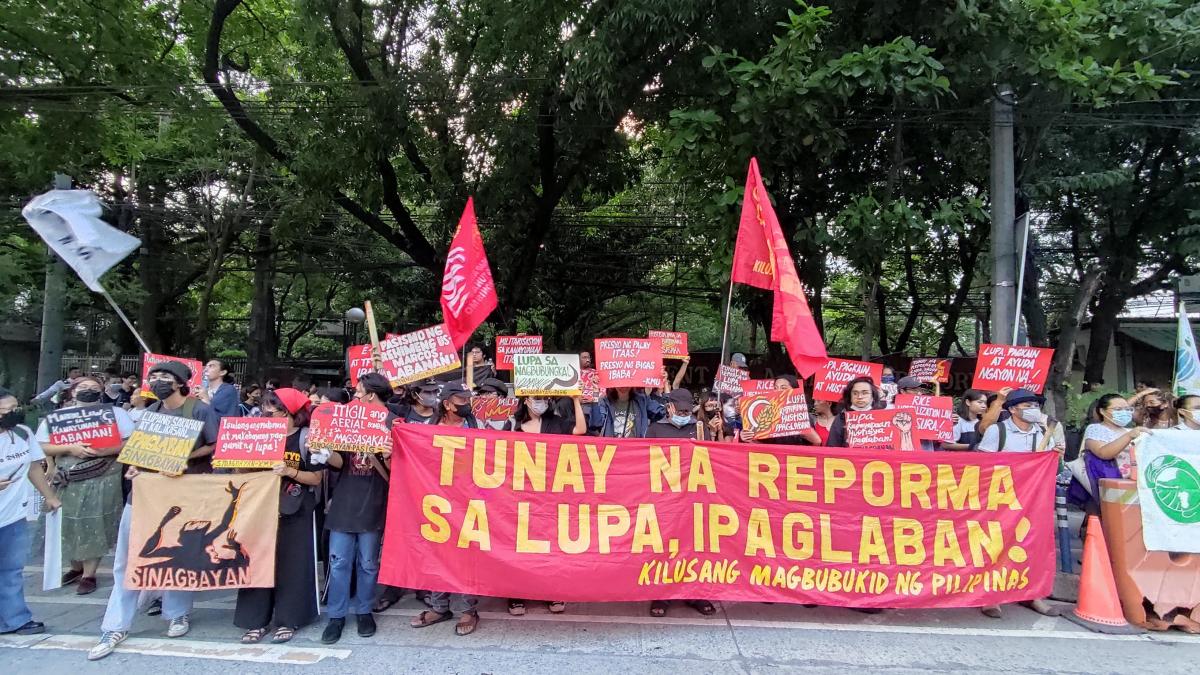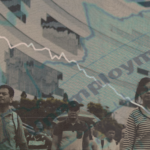On the eve of the 35th year of the sham land reform Comprehensive Agrarian Reform Program, landless farmers from CALABARZON and Central Luzon provinces, together with various sectors will march from the Department of Agrarian Reform (DAR) towards the footsteps of Malacañang in Mendiola to demand President Marcos Jr. to address the pressing decades-long issue of peasant landlessness.
With them are their fiery calls for genuine agrarian reform, justice for victims of human rights abuses, and the ending of militarization of peasant communities.
“The basic reality remains, there is still no genuine land reform. Without this, peasant landlessness can only worsen, and the domestic agriculture and economy will remain underdeveloped,” according to Kilusang Magbubukid ng Pilipinas.
KMP said a genuine agrarian reform program resolves the land problem by mobilizing peasants and exercising state power to (1) break -up land monopoly, (2) freely distribute land to tillers, (3) promote cooperativization, (4) provide intensive support services, and (5) build rural industries towards national development.
Such a program addresses the Filipino peasantry’s historical plight for social justice, provides rural jobs and livelihoods, builds food self-sufficiency, and protects the environment, among others.
Marcos Jr’s response to broad calls for land reform lacking
“Marcos Jr released EO 4 in September 2022, implementing a one-year moratorium on amortization payments for CARP beneficiaries. He has also batted for the New Agrarian Emancipation Act which will condone or write off beneficiaries’ debts. Currently, the bill has passed both Congress and is now only awaiting his signature.”
“Both measures have been made possible only by the continued assertion of the Filipino peasantry for free land distribution. While these may offer some relief to around 610,000 beneficiaries, they are no substitute for a new, throughgoing, and redistributive agrarian reform program,” says former DAR secretary Rafael Mariano
He added: “in fact, the Marcos Jr administration pursues other more sinister ways to further liberalize land and agriculture.”
Acting as concurrent Agriculture Secretary, Marcos Jr has pushed for further corporatization in agriculture under the guise of developing “value chains”, consolidating farms, and reviving Masagana 99, among others.
Marcos Jr has pushed for the country’s inclusion in the China-led RCEP and US-led IPEF, both set to deepen the local economy’s foreign dependence through unequal trade. Similarly, he has pushed for bilateral free trade agreements with the US and the European Union.
Aside from the P19-billion-worth SPLIT Project, the World Bank has hurriedly funded the P45-billion Philippine Rural Development Project (PRDP) Scale-Up which promotes ramping up the production of for-export and other cash crops. Marcos Jr. has also met with the Thai agro-industrial and food conglomerate Charoen Pokphand Group which has promised USD 2.5 billion investment in agriculture.
Among the administration’s priority legislations, the proposed National Land Use Act (NaLUA) and the 30-year National Infrastructure Program have both passed the Lower House. Both are set to worsen the problem of land use conversion, in conjunction with the regime’s Build-Better-More program which added 123 new flagship projects to its predecessor. Marcos Jr has also supported an economic charter change, which can include 100% foreign land ownership.
Enough with CARP
CARP wasted more than P306 billion in funding from 1988 to 2016, with P77 billion that was sourced from the recovered Marcos ill-gotten wealth, and P188 billion from the annual government budget. Also, a gauge exposing its duplicity was its failure to be completed on its original 10-year implementation, which was extended for another 10 years to 2008, and then another until its expiration in June 2014. In 2008, CARP had a balance of area coverage of 1.2 million hectares, but still, in 2016, it had a balance of 1.2 million hectares in strategic operation provinces.
“Dahil expired na ito, at wala namang isinabatas para i-extend ito o na bagong batas, sa kasalukuyan, ang mga magsasakang walang lupa sa bansa o mga nakikisaka, ay walang maaasahang repormang agraryo.”
The Congress also continuously rejected the comprehensive proposal of the peasant sector for an alternative agrarian reform program, enshrined in the Genuine Agrarian Reform Bill filed by the Makabayan lawmakers. The said bill proposes free distribution of land to poor peasants in the country, and Filipinization of plantations controlled by foreign agro-corporations.
KMP said is up to peasants and other toiling masses to resolutely demand and advance people-led and people-oriented reforms. ###



